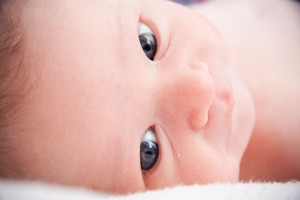 Scientists in the U.S. have been experimenting with the possibility of creating three-parent babies, according to reports.
Scientists in the U.S. have been experimenting with the possibility of creating three-parent babies, according to reports.
The process involves using genes from one man and two women, as the birth mother’s nucleus is infused into the donor woman’s egg, fertilized and then implanted into the uterus of the birth mother. It all takes place via in vitro fertilization.
Scientists believe that many diseases that children are born with are inherited from their mother’s genes, as women can sometimes have defective mitochondria. By replacing the birth mother’s mitochondria with that of a healthy woman with exceptional DNA, researchers state that they can reduce the chance of disease in babies.
However, researchers admit that there are concerns with the ethical ramifications of such a procedure, which manipulates the very DNA of humans.
“It uses the same principle as cloning, switching out the DNA of one woman for the DNA of another,” Laurie Zoloth, a professor of medical humanities and bioethics at Northwestern University in Ohio, told reporters. “Last time we debated cloning, using adult cells and not eggs– we were determining whether it could be used as a method to make a matched stem cell line. It was ultimately decided you can use cloning for stem cell lines, but not to make babies because of the risks involved when you manipulate embryos this much. We’ve had the debate, and the answer has been ‘no.’ We can’t just go ahead and say the debate didn’t happen.”
Biologists at Oregon Health & Science University in Beaverton said that they have already created embryos with donated mitochondria. Researchers in the United Kingdom have also been studying the matter and legislators are considering legalizing the practice.
However, scientists state that they wish to take their time in further examining the procedure before moving forward.
Become a Christian News Network Supporter...


